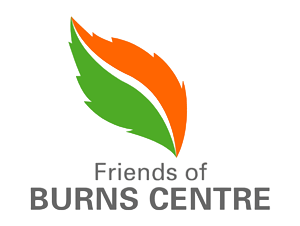Nutritional Management for Burn Patients
How do you meet your nutrition needs while hospitalized?
Healing from a burn injury requires more calories and protein than any other type of injury. You may need more nutrients than what you get from eating only by mouth. If this is the case, tube-feedings can deliver more nutrients. A soft, flexible tube inserted through the nose reaches the stomach and delivers liquid formula that contains all of the nutrients needed for healing. Tube-feedings continue as long as necessary.
You may need to add nutrient-rich snacks and beverages in between meals. For example, drinking milkshakes or smoothies may help you meet your calorie and protein needs. High-protein foods include meat, fish, eggs, legumes, milk, yogurt, cheese, and nuts. You should eat high-protein foods at every meal and as snacks. If needed, vitamins may be recommended by the health care team.
The health care team also monitors the level of salt in your blood. If your level of salt is low, you may need to reduce the amount of water and fluid that you drink. This keeps you from diluting the level of salt even more. The team may also ask you to eat foods with higher salt content.
In the hospital, a dietitian may work with you to make sure you are getting enough nutrients to heal. The dietitian follows your weight, nutrient intakes and outputs, wound healing, and levels of protein and vitamins in the blood. After leaving the hospital, maintaining a stable weight is the best way to make sure you are staying nourished. After leaving the hospital, eating a balanced diet is the best way to make sure you stay nourished but do not gain too much weight.
What if you have diabetes or high blood sugar?
After a burn injury, stress forces the level of sugar in your blood to increase. High blood sugar interferes with healing. Even if you don’t have diabetes, you may have high blood sugar. Your health care team may prescribe insulin which lowers blood sugar. Until your blood sugar improves, you might have to limit the amount of foods you consume that are high in carbohydrates, such as bread, juice, potatoes, fruit, and desserts.
What should you eat at home?
Remember, your body requires fewer calories than when you were hospitalized. If your burn wounds are still open, your diet should include extra protein. As you continue to heal, your nutrition needs will be like they were before the injury. At the hospital, you likely ate large meals, drank nutrition supplements, and ate a lot of snacks. So your appetite may be big when you get home. Now focus on a balanced diet. Avoid foods with little nutritional value, such as sugary beverages, desserts, candy, fatty meats, whole-fat dairy, and white breads or crackers. Eat more lean meats, whole grains, vegetables, fruits, and low-fat dairy.
Solid educational producing assistance is at all times willing to facilitate learners with the give good results. Purchase essay prepared by expert and knowledgeable essay freelance writers.
